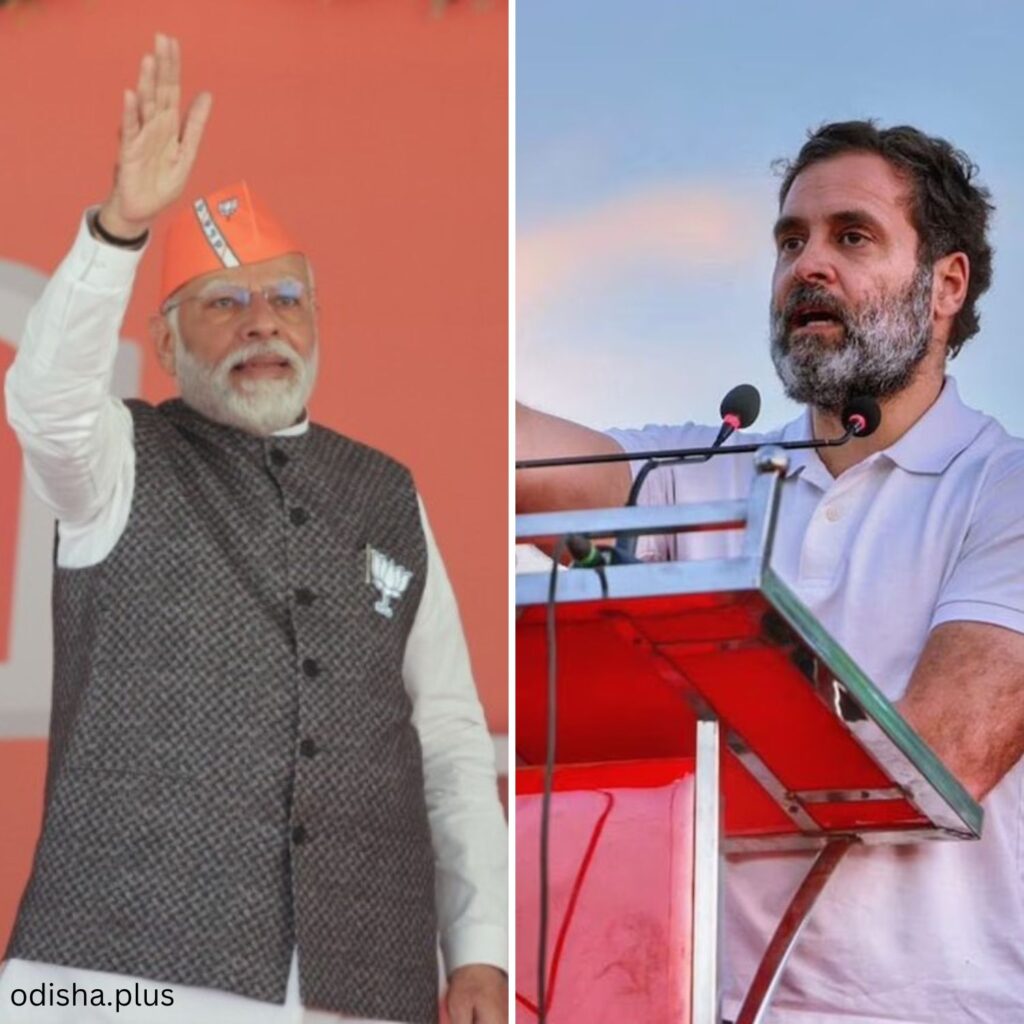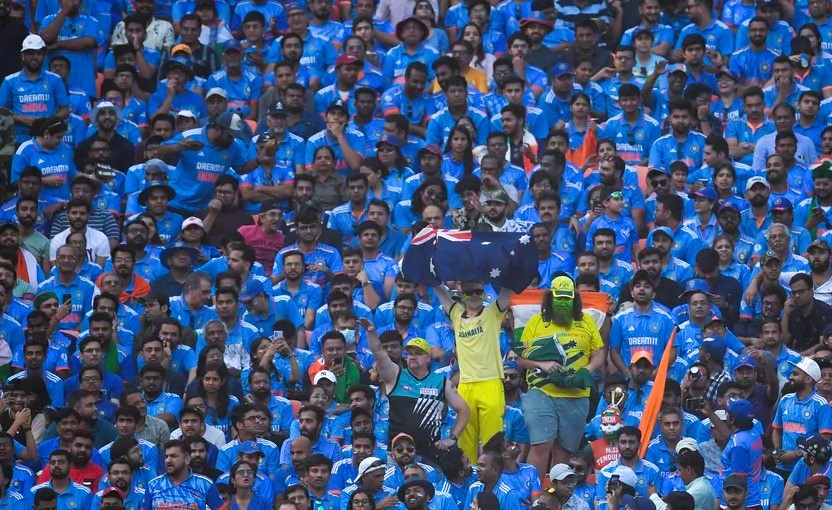Sutanu Guru
I have been laughing out loud over the controversy generated by the word Panauti in event times. Roughly, Panuati is a person who brings bad luck or ill omens. Just in case if you have missed this circus performance, the word has been hurled against Prime Minister Narendra Modi by his critics. Social media tends to make these controversies more toxic and entertaining at the same time.
 Even before the India-Australia World Cup final had started, his critics called him a Panauti when it was announced that Prime Minister Modi will watch the match live in Ahmedabad. But that flew under the radar. It became a social media battlefield after India lost the finals when the issue started trending on social media. And it became a full-fledged war when Congress leader Rahul Gandhi derisively used the term Panauti during a pubic rally. All hell broke loose.
Even before the India-Australia World Cup final had started, his critics called him a Panauti when it was announced that Prime Minister Modi will watch the match live in Ahmedabad. But that flew under the radar. It became a social media battlefield after India lost the finals when the issue started trending on social media. And it became a full-fledged war when Congress leader Rahul Gandhi derisively used the term Panauti during a pubic rally. All hell broke loose.

Supporters of prime minister, which includes many journalists cried foul. They were outraged that such “abusive” language has been used against India’s most popular and towering leader. BJP leaders denounced Rahul Gandhi for stooping “so low”. The entire Nehru-Gandhi clan from Jawaharlal Nehru onwards was called Panauti by Modi supporters. Modi critics responded by pointing out how the Prime Minister himself has used epithets and mocked opposition leaders publicly on many occasions.
How could this circus performance be complete without shrill debates on TV channels? I couldn’t help laughing at all this? Really, is India’s image damaged if opponents and critics of the prime minister use epithets against him on public and social media platforms? When will we grow up as a democracy? The fact is: successful politicians all over the world are thick skinned and are used to epithets being hurled against them.
It is their fans and supporters who make a mockery of the banter. Apart from generating a lot of noise and hot air, such silly controversies serve no other purpose than to trigger ideological warriors to behave like frenzied tribals at the launch of an ancient battle.
Nor do epithets make a difference when it comes to firming up the minds of voters. Recall the 2014 Lok Sabha campaign when the UPA regime was tottering like a drunken sailor about to face twenty lashes for misconduct. Two of the most frequently words during the campaign were Pappu for Rahul Gandhi and Feku for Narendra Modi. Did that really make any difference to voters? Not at all.
Those who believed Rahul was politically immature and prone to gaffes would have believed so whether he was called a Pappu or not. And those who believed Modi was all about exaggerated claims and false promises would have believed so whether he was called a Feku or not. The fact is: the Indian voter was convinced by 2014 that the UPA regime was mired in corruption, prone to appeasing minorities at the cost of Hindus and had badly mismanaged the economy with inflation at near double digits since 2010.
In contrast, Modi offered a positive vision for the future and leveraged his successful track record as Gujarat chief minister to sell dreams. Enough voters were convinced to deliver a majority to the BJP in 2014 and reduce the Congress to a pathetic 44 Lok Sabha seats. Yet, it was the same UPA regime led by Dr. Manmohan Singh that had been given a positive and big second mandate to rule in the 2009 Lok Sabha elections.

Back then most voters thought Dr Singh would do a better job of managing the economy and that the BJP led by L. K. Advani didn’t have anything new and worthwhile to offer. This cycle was repeated in 2019 when all Rahul Gandhi had to offer was make wild allegations about corruption in the Rafale fighter aircraft deal and go on saying “Chowkidar Chor Hai”.
The voters didn’t buy the rhetoric. They had seen what the Modi government had done to help the poor through various welfare schemes between 2014 and 2019. They trusted Modi to do a better job just as they had trusted Dr Singh to do a better job in 2009.
Rhetoric is good for headlines and social media warfare. Voters don’t bank on epithets to decide who deserves a shot for the next five years. That brings us to another question: can K. C. Rao in Telangana, Bhupesh Baghel in Chattisgarh, Shivraj Singh Chauhan in Madhya Pradesh and Ashok Gehlot in Rajasthan deliver pro-incumbency verdicts?
The fact is: the current century has seen a peculiar political phenomenon where voters have repeatedly re-elected popular and charismatic leaders to rule them. Perhaps the most powerful example is Naveen Patnaik who has won five consecutive mandates in Odisha and looks good to win a sixth one next year. Other chief ministers have not been far behind. Of particular interest would be Rajasthan which usually changes governments.
But then Kerala changed governments for 50 odd years before Pinnari Vijayan won a repeat mandate in 2021. The BJP won repeat mandates in Goa, Uttarakhand and Uttar Pradesh-breaking previous trends and norms in 2022.
Can these chief ministers do the same? Or will “anti-incumbency” become their Panauti?
(Author has been a media professional for over 3 decades. He is now Executive Director, C Voter Foundation. Views are Personal)



















